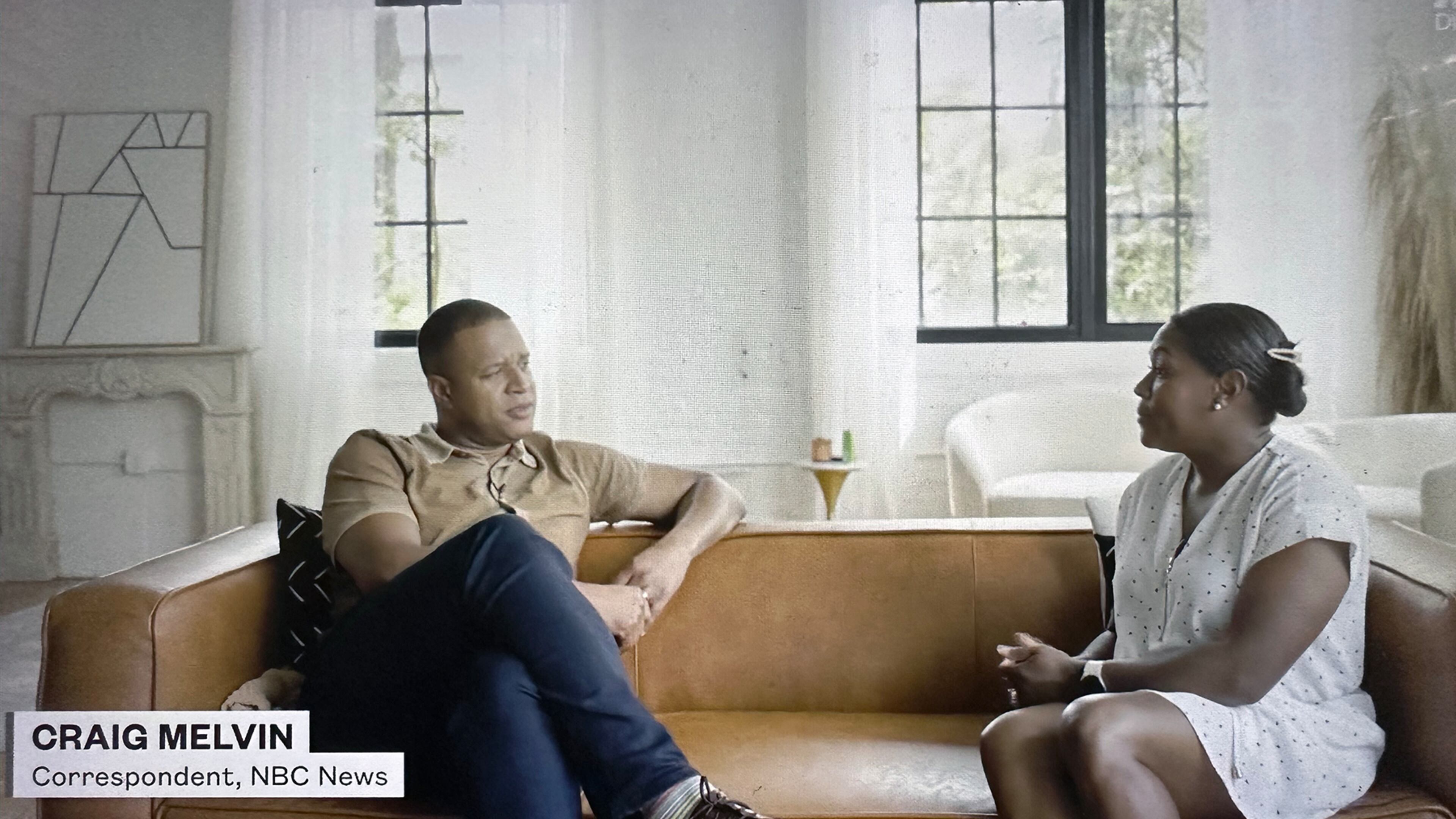‘Today’ host does short doc about Atlanta’s police training center

“Today” show anchor Craig Melvin took some spare time from his busy schedule to dig into the controversial new police training center that has been dubbed “Cop City” by opponents.
Melvin, a Columbia, South Carolina, native who remembers visiting Six Flags in Atlanta as a child, said a producer mentioned the burgeoning story to him in the spring and he became instantly intrigued.
“I started doing some reading and discovered it was the kind of story that couldn’t be told in two or three minutes,” Melvin said in an interview with The Atlanta Journal-Constitution. “It’s a complicated, nuanced story. I had been looking for an opportunity to work with our digital documentary unit. It was a perfect fit.”
Last week, NBC News Digital released a 17-minute short documentary available for free at nbcnews.com.
“The story intersects race, policing, the environment and gentrification,” Melvin said. “These are subjects front and center in this country the last few years.”
Melvin, who has worked with MSNBC and NBC News since 2011 in different capacities, interviewed Rev. Keyanna Jones, an organizer for Community Movement Builders and a foe of the training facility, and followed opponents as they canvassed neighborhoods before the June funding vote. He also spoke with Atlanta police chief Darin Schierbaum, who explained why APD needs the training center and disputed accusations that they are “militarizing” the police department.
Mayor Andre Dickens, who has supported the center, also sat with Melvin. “The silent majority is usually at home,” Dickens told Melvin, noting the opponents are far more vocal than those who are okay with the facility.
The mayor and police chief “wanted to get their message out so people understood their position,” Melvin said. “I respect that.”
He also provided some national perspective on how there were cries to “defund” the police after the George Floyd killing but many cities have since been upping police spending after crime went up.
Melvin’s big get is the mom of forest development defender Manuel “Tortuguita” Terán, who was shot 57 times and killed by cops in January. He was camping on the territory. “I don’t understand why they have to be so cruel,” Belkis Terán told Melvin. It was her first sit-down interview with a major network. Yet at the same time, she wasn’t angry with the cops but believes the “system is corrupted.”
She spread her son’s ashes in the forest where he died, she said.
“She had taken up the mantle in her son’s honor,” Melvin said. He said she was willing to talk with him because “she understood her voice would not be wasted and she’d be able to reach a sizable audience talking to us.”
Melvin was unable to take time off from his primary duties to do this documentary. Several times over a span of months he would fly to Atlanta as soon as he was finished with the “Today” show, spend a few hours doing interviews, then scurry back to New York on the last Delta flight out.
But he has no regrets. “There’s more of an appetite than there used to be for deep-dive journalism,” he said. “We really did go out of our way to make sure we included all sides.”


